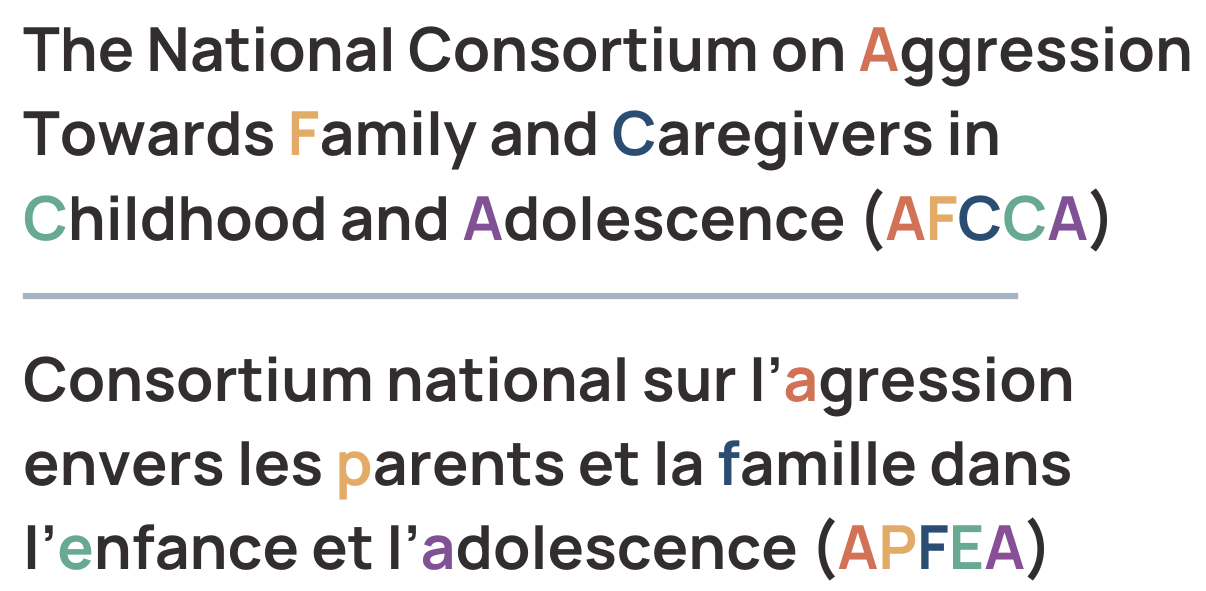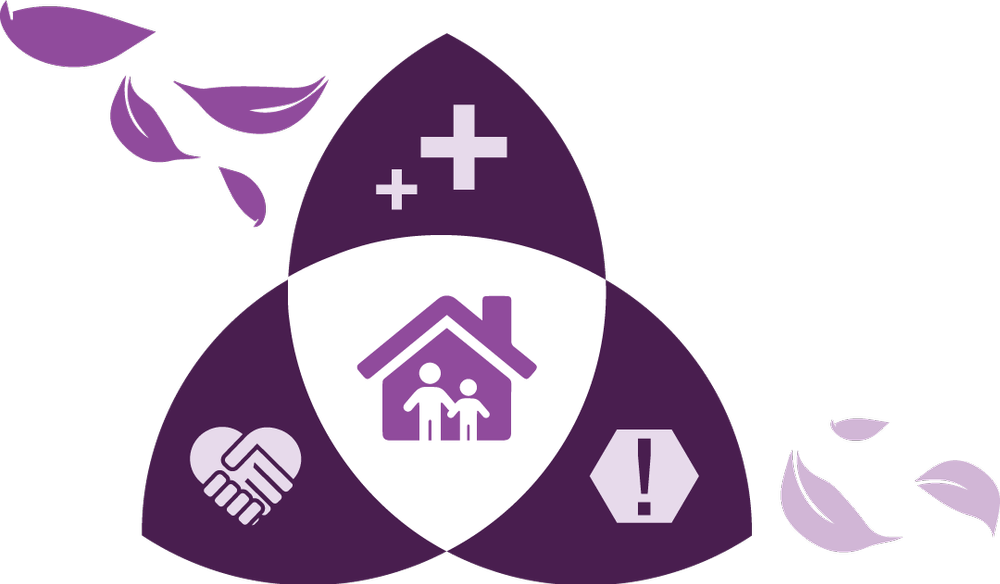
Individuals’ names have been changed in order to protect their privacy, or that of their child /adolescent.
mia & nikki’s story
Mia and Jeff are parents to six children, four of whom are adopted. From the beginning, their eldest daughter Nikki began to show increasingly more aggressive behaviour, especially towards her siblings. Mia and Jeff pursued attachment therapy for their children, but it didn’t work for Nikki, and her aggression continued to worsen.
“The more we tried to bond with her, the more she tried to push away,” Mia recalls.
Nikki eventually received complex medical diagnoses that included Fetal Alcohol Spectrum Disorder, or FASD. For some adopted children like Nikki, experiences of developmental trauma prior to adoption coupled with mental health diagnoses can contribute to exhibiting AFCCA.
As Nikki entered her teens, her behaviour became more volatile towards her younger siblings, who were also becoming more aggressive towards each other. Managing it all took a serious toll on Mia’s mental health.
“It was like this light bulb went off and I was like, ‘That’s it. That’s what I’ve been experiencing!’” she remembers.
Over the years, Mia and her family met with several professionals who were not able to help them. Free therapy focused on cognitive behavioural therapy, which can be helpful for some but made Nikki’s behaviour worse. It didn’t help that family and friends just could not understand the situation, and judged Mia and Jeff’s “poor” parenting skills.
“I feel like we lost some relationships along the way because of some things that were said that were really hurtful,” Mia says.
In 2022, Mia joined the newly-launched Adopt4Life AFCCA Family Supports Program. It was the first time she had ever heard the term AFCCA, and suddenly everything made sense.
“It was like this light bulb went off and I was like, ‘That’s it. That’s what I’ve been experiencing!’” she remembers.
Mia accessed several targeted interventions through the AFCCA Family Supports Program, including sessions on Polyvagal Theory that reduced the anxiety she had battled for so long.
She also learned a different way to respond to Nikki through Non-Violent Resistance.
Today, the family ties are stronger than ever and Nikki feels loved and connected to her family. Mia is proud of her daughter for pushing through enormous obstacles to become the young adult she is today. And as for Mia herself, she says that she’s found peace.
This story is shared with permission from National Consortium partner, Adopt4Life. Adopt4Life’s AFCCA Family Support program has developed 3 family stories that shed light on the experiences of families living with AFCCA. Mia’s family is experiencing significant but lower levels of aggression than some families.
Most AFCCA families are going without the help they desperately need.
Mia’s family has greatly benefited from targeted support for AFCCA, but they are one of a very small number. Adopt4Life is aware of several hundred families who could benefit from the AFCCA Family Supports Program, but the funding is only available to support families who have gone through the public adoption process and are facing the most difficult crises. AFCCA is not exclusive to the adoption community.
Here’s what Mia wants Canadians to know about AFCCA:




